Georgia: New destination of sex tourism for Azeri men
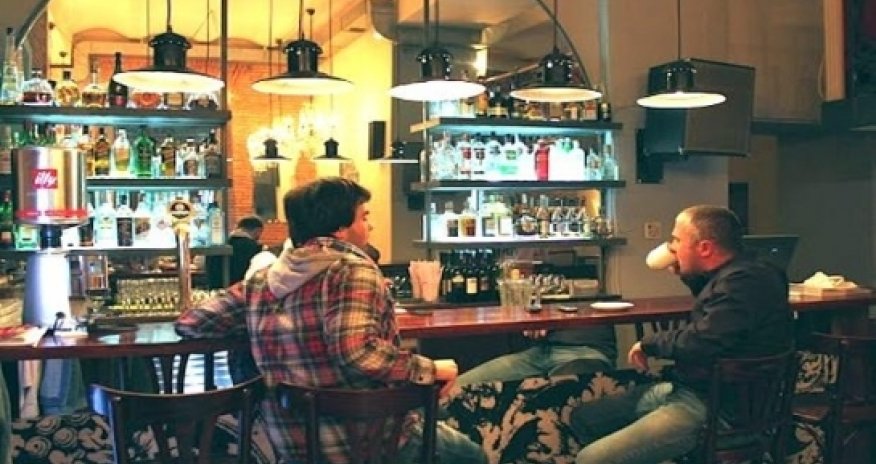
By Kamal Ali
During Soviet times, Azerbaijanis would travel to Tbilisi to see the neighboring Soviet city. Residents of Azerbaijani districts bordering Georgia often visited their neighbors over the border to do shopping – items that were in short supply in Soviet Azerbaijan were easily available in Georgia.
I was once taken to Georgia for shopping when I was a child visiting a relative of mine in Tovuz District together with my family.
In the 1990s, Georgia all of a sudden became a venue of meetings between Azerbaijani and Armenian NGO members. A lot was spoken about peace during those meetings. Foreign grants received by Armenian and Azerbaijani NGOs to organize such meetings were huge enough to build another Karabakh.
I attended six or seven of such meetings, where participants were fed very well. Nighttime gatherings at restaurants were particularly pleasant.
Armenians are amazingly emotional people around the table. Interestingly enough, Azerbaijanis and Armenians could easily find common language at such gatherings while Georgians were kept aside.
Thanks to its geographic location, Georgians quickly developed their hotel businesses. They turned their two-story family houses on the outskirts of Tbilisi into small hotels. Guests would sit around the same table for dinner.
“Wine is for free, dear guests. So please drink as much as you please,” a landlord with a long moustache once said.
Towards the end of Eduard Shevardnadze’s presidency, a large car market opened near the town of Rustavi. Mostly second-hand cars and car parts imported from Europe were offered in the market. A lot of Azerbaijanis were involved in the business. They would buy cars in the Rustavi market and sell them in Azerbaijan. Almost all second-hand Mercedes, Opel and BMW cars that are currently in use in Azerbaijan have been bought at the Rustavi market.
Having paid all customs duties and bribes in Baku, a trader would profit $1,500 to $2,000 from each car.
Some people in Azerbaijan would go to Rustavi to buy cars for themselves. They would hire an ethnic Azerbaijani citizen of Georgia as an advisor, who received $200 for a half-day job to help pick up a car and do the necessary paperwork.
But the business was badly affected when Azerbaijan banned the import of old cars this year.
During Mikheil Saakashvili’s years as president, Georgia was an example for us of how a corrupt former Soviet republic in the Caucasus can develop into a European-style democracy. Naïve girls and women from Azerbaijani NGOs attending events in Tbilisi shared their positive experiences of Georgia on Facebook.
I am not from that group of people thrilled by Georgian democracy, yet the behavior of Georgian police made me respect and envy them.
To see the other side of Georgian life, you need to step outside of the central Rustavelli Avenue. Dilapidated houses and groups of drug addicts present a very grim face of Georgian life. Nonetheless, Georgia is a democracy. At least, I think so.
Let’s come back to our days. When I was on my way home from a district in northwestern Azerbaijan, close to the Georgian border, three days ago, I heard a lot of interesting stuff about Georgia and what the neighboring country means for us today.
I heard that Azerbaijanis in border reasons travel to Georgia for medical treatment. It was no surprise to me given that about a million Azerbaijani residents visit Iran every year in search of better and cheaper medical services. Those visiting Georgia to see a doctor are probably much smaller in numbers though.
No visas are required to travel to and from Georgia.
The most interesting piece of news I received was about the fledgling sex tourism in Georgia. A relative of mine in Qax District, on the Georgian border, told me that Azerbaijanis often visit bars in central Tbilisi that serve as brothels. You can buy cheaper and safer sex (only with condoms) in these bars, which are clean and nice, he told me. With no threat of police raids, you choose between a variety of ladies, among them long-legged Ukrainians. The rate is around $25 dollars, half the price in Baku, he said.
Azerbaijanis and Georgians are in good neighborly relations. We feel in comfort in Georgia. It is our next-door neighbor, where life is cheaper. To us, it is like mini-Europe. If you cannot afford to go to Europe, you can get the smell of it in Georgia.
Bakudaily.az

























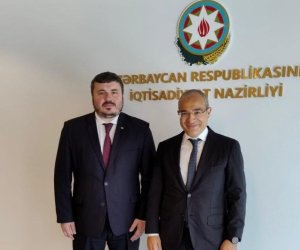

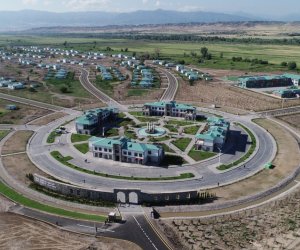

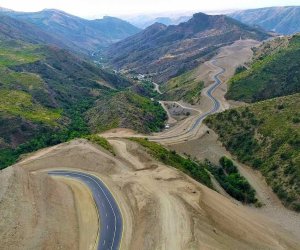
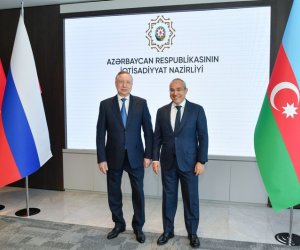





 Photo
Photo 



 Video
Video 

